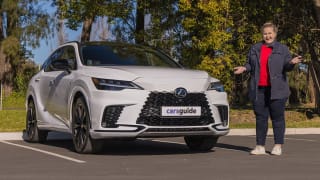
Lexus RX 2023 review: 500h F Sport Performance
The new RX has been revamped, restyled and retooled, so how does it compete in the luxury large SUV market?
Browse over 9,000 car reviews
Mazda Australia is on a quest to differentiate itself from mainstream rivals like Ford, Hyundai, Kia and Toyota and its big play is to nudge itself upstream as a more premium player.
To do so, it's launching a new product offensive based on a new platform with new six-cylinder engines, and leading that charge is the CX-90 large SUV.
As the largest and most expensive model in Mazda Australia's current line-up, it's no understatement to say the CX-90 has a lot of expectation riding on its hefty shoulders.
So, to find out if Mazda's premium push is the step in the right direction for buyers (and the brand), I'm testing the top-spec CX-90 Azami diesel for three months to see how it fares under family conditions.
And on first impressions… well if the word 'wow' could somehow transform like a real-world Optimus Prime, it would morph into the CX-90.
The styling is simply stunning, a proper evolution of Mazda's distinctive design language interpreted as a large SUV platform.
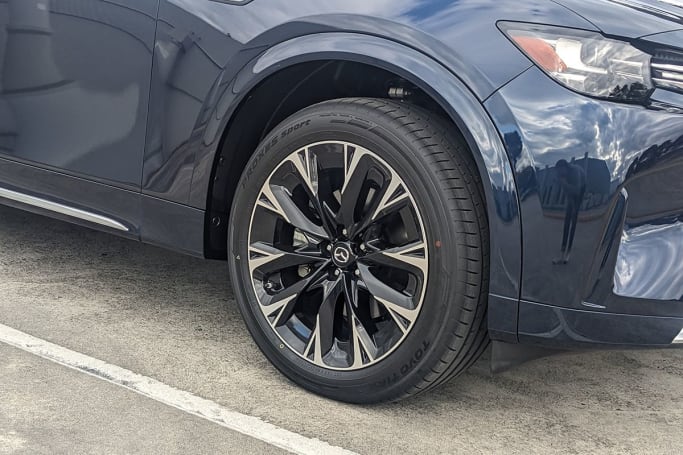
Yes, the CX-9 did it first, but the CX-90 does it better.
The long bonnet and short overhangs particularly make the CX-90 look taught and athletic, while the wheel fitment is the chef's kiss, filling out the arches well.
And of course, you can't be a premium-leaning SUV without having body-coloured wheel arch cladding, which elevates the CX-90 from the likes of the Toyota Kluger, Hyundai Santa Fe and Kia Sorento.
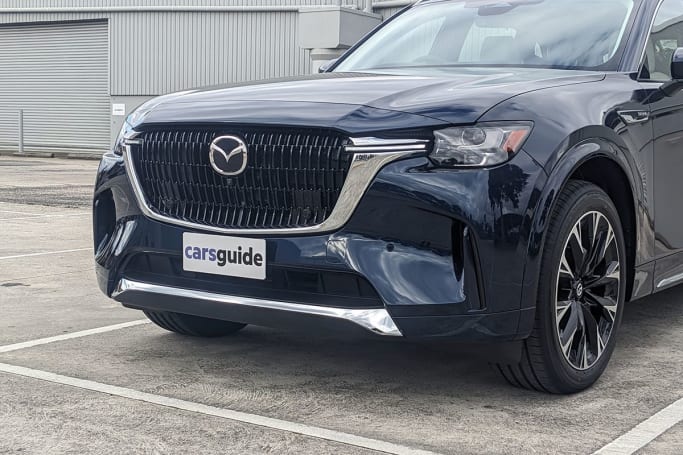
Up front sits the brand's new grille front, surrounded by chrome to hammer home its premium intentions, while the sleek headlights and six-cylinder badging on the fenders announce that this isn't a run-of-the-mill Mazda model.
The Mazda CX-90 is a good-looking car, and I am definitely a fan, as are other parents and educators who would stop and ask about it at childcare pick-up and drop-offs.
Step inside and as good as the outside looks, the interior is even better – especially with this 'Takumi Pack' option.
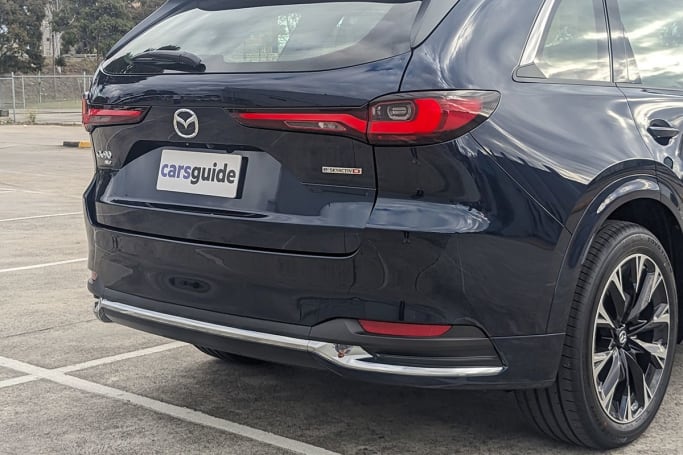
While the Takumi Pack adds $5000 to the asking price, it features white Nappa leather seat trim, white maple wood inserts, second-row captain's chairs (with cooling) and the sickest-looking dashboard treatment I've seen in a long time.
Instead of the usual soft-touch leather or woodgrain finish, Mazda has wrapped the CX-90's dash in fabric with a unique cross-stitch pattern that shows such care and attention to detail. It's a very cool touch.
Overall, the Takumi pack is something to behold, and goes way beyond the semi-premium feel of Mazda's existing products, and elevates it above the likes of Audi, BMW, Mercedes-Benz and Volvo.
Worth the $5000? Absolutely.
But that isn't to say the CX-90 doesn't feel like a Mazda, because the familiar elements are there like a floating, widescreen multimedia system, rotary control knob and recognisable (albeit digital) instrument cluster.
However, the 'Jinba-Ittai' philosophy (meaning oneness between horse and rider) shines here, too, with fantastic driving ergonomics that gives clear visibility and confident control to those behind the wheel.
So, the CX-90 presents very well, but how does it drive?
I'll be honest, after driving the CX-60, I didn't have high hopes for the CX-90, as both share the same platform and powertrain, but I'm happy to report the jerkiness and hard ride of the former doesn't find it's way into the latter.
Maybe it's the longer wheelbase, or different bushings, or just a different tune somewhere in the transmission and/or suspension? I've asked Mazda and there's not yet a clear answer.
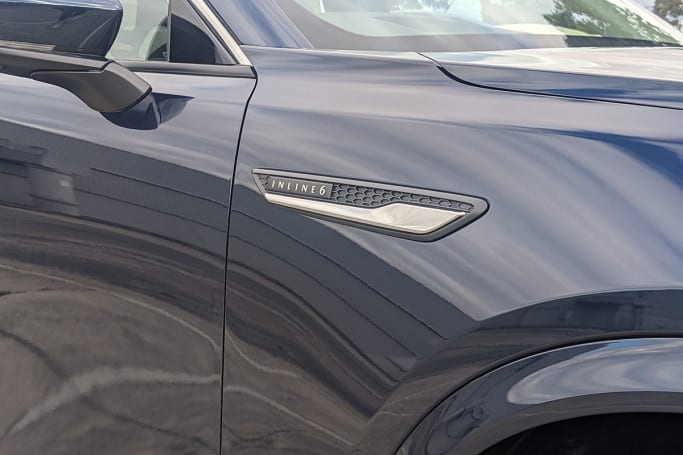
Either way, the CX-90 is a much more comfortable than the CX-60.
In this spec, the CX-90 is fitted with a 187kW/550Nm 3.3-litre turbo-diesel in-line six-cylinder engine with 48-volt mild-hybrid technology, paired with an eight-speed automatic transmission that sends drive to all four wheels.
The diesel engine is especially peppy with peak torque on offer from 1500rpm, while the transmission shifts smoothly without sending jolts into the cabin (unlike the CX-60).
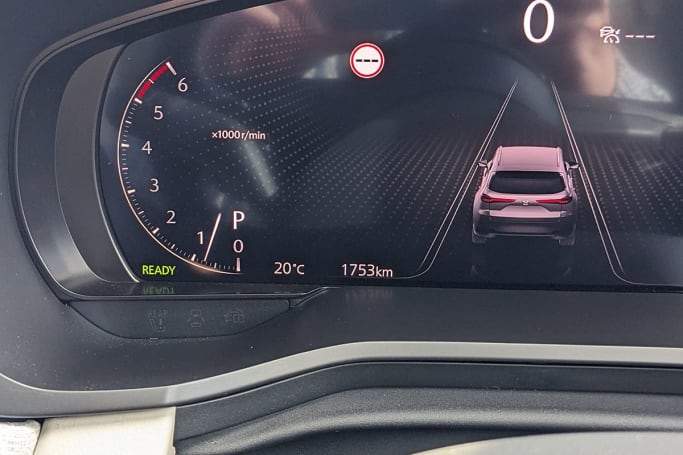
The ride is also great, with the CX-90 gliding over small bumps and uneven surfaces with a composure befitting a premium SUV.
I'll dig more into driving dynamics in a future instalment, but for now, know that the CX-90 handles itself well on the road and behaves more like a very large hatchback than a wobbly high rider.
All good so far then, but the biggest hurdle Mazda has to overcome for the CX-90 to be a success is convincing customers to fork over this much cash.
The CX-90 line-up kicks off at $73,800, before on-road costs, for the petrol-powered Touring, but our test car comes in at $92,540, and with the Takumi Pack that figure extends to $99,040.
That's right, this is a $100,000 Mazda, and puts it in the ballpark of the European rivals with arguably more badge cred like the Audi Q7 45 TDI ($108.469), Jaguar F-Pace D300 R-Dynamic SE ($105,300), Land Rover Defender 110 D300 X-Dynamic SE ($106,720) and Range Rover Velar P250 Dynamic SE ($104,620).
The Mazda, though, has an absolutely stacked equipment list in its favour (again, more on that in a future instalment), but for some buyers there's no denying paying $100,000 for a Mazda will be a hard pill to swallow.
Ultimately though, there's enough going in the CX-90's favour – at least after one month of 'ownership' – to justify that asking price.
The CX-90 is comfortable, drives well, it's feature packed, has a potent engine and turns heads. So, what more could you want from a premium family SUV?
Acquired: August 2023
Distance travelled this month: 711km
Odometer: 2464km
Average fuel consumption this month: 7.5L/100km (measured at the pump)